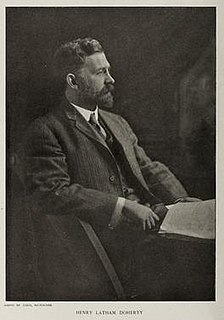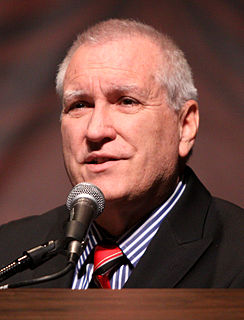A Quote by Adam Smith
In the long-run the workman may be as necessary to his master as his master is to him, but the necessity is not so immediate.
Related Quotes
The real master is only a presence. He has no intentions of being a master. His presence is his teaching. His love is his message. Every gesture of his hand is pointing to the moon. And this whole thing is not being done, it is a happening. The master is not a doer. He has learned the greatest secret of life: let-go. The master has drowned his ego and the idea of separation from existence itself.
Some would define a servant like this: 'A servant is one who finds out what his master wants him to do, and then he does it.' The human concept of a servant is that a servant goes to the master and says, 'Master, what do you want me to do?' The master tells him, and the servant goes off BY HIMSELF and does it. That is not the biblical concept of a servant of God. Being a servant of God is different from being a servant of a human master. A servant of a human master works FOR his master. God, however, works THROUGH His servants.
A dog will recognize his master in whatever way he dresses. The master may dress in robes, suit and tie, or stand naked, but the dog will always recognize his master. If we cannot recognize God, our beloved master, when he comes in a different dress from another religion, then we are less than that dog.
His master’s pain was his pain. And it hurt him more for his master to be sick than for him to be sick himself. When the house started burning down, that type of Negro would fight harder to put the master’s house out than the master himself would. But then you had another Negro out in the field. The house Negro was in the minority. The masses—the field Negroes were the masses. They were in the majority. When the master got sick, they prayed that he’d die. If his house caught on fire, they'd pray for a wind to come along and fan the breeze.
Often nothing keeps the pupil on the move but his faith in his teacher, whose mastery is now beginning to dawn on him .... How far the pupil will go is not the concern of the teacher and master. Hardly has he shown him the right way when he must let him go on alone. There is only one thing more he can do to help him endure his loneliness: he turns him away from himself, from the Master, by exhorting him to go further than he himself has done, and to "climb on the shoulders of his teacher."
The difference between the novice and the master is simply that the novice has not learnt, yet, how to do things in such a way that he can afford to make small mistakes. The master knows that the sequence of his actions will always allow him to cover his mistakes a little further down the line. It is this simple but essential knowledge which gives the work of a master carpenter its wonderful, smooth, relaxed, and almost unconcerned simplicity.
Brotherly love is not a tangible commodity. We cannot touch it or weigh it, smell it of taste it. Yet it is a reality; it can be creative, it can be fostered, it can be made a dynamic power. The Master who has it in his Lodge and his brethren will find that Lodge and brethren give it back to him. The Master too worried over the cares of his office to express friendliness need never wonder why his Lodge seems too cold to his effort.




































